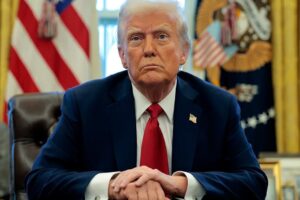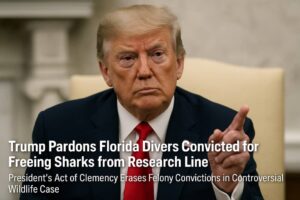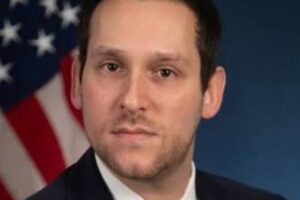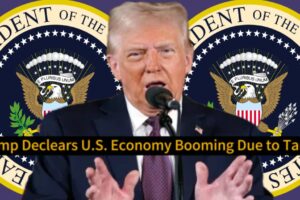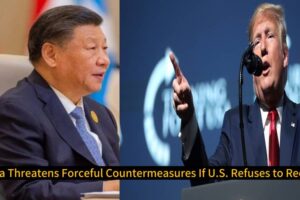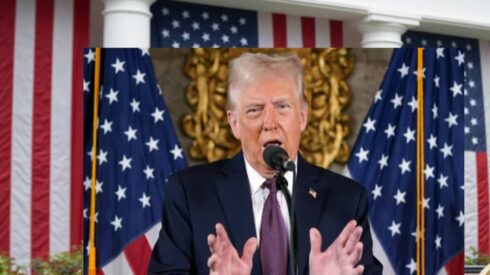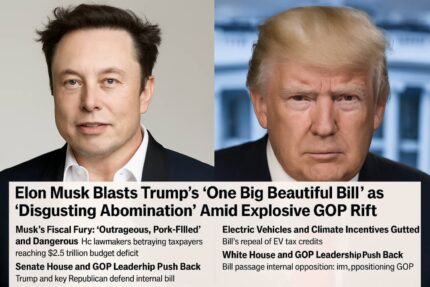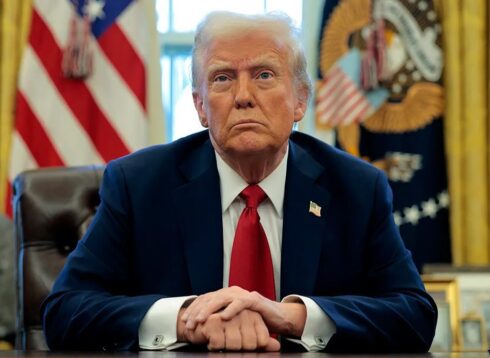President Donald Trump ignited a wave of criticism after publicly expressing uncertainty over whether everyone on U.S. soil—citizens and non-citizens alike—is entitled to due process, a constitutional protection enshrined in both the Fifth and Fourteenth Amendments. In a revealing interview aired Sunday on NBC’s Meet the Press, Trump responded to a direct question on the issue by saying, “I don’t know. I’m not a lawyer.”
When pressed further on whether he believes he must uphold the Constitution as president, Trump continued to distance himself from a definitive stance. “I have brilliant lawyers that work for me… they are going to obviously follow what the Supreme Court said,” he remarked. The former president’s comments are being closely scrutinized by legal experts, who argue that due process rights are foundational to American law and apply to anyone under U.S. jurisdiction.
Trump’s hesitation comes amid ongoing criticism that his administration failed to respect legal norms, particularly in its handling of immigration and asylum cases. Legal scholars warn that ambiguity from a former head of state regarding constitutional guarantees could erode public trust in the rule of law.
The Deportation Error: Kilmar Abrego Garcia’s Case Explained
The constitutional controversy is tied to the case of Kilmar Abrego Garcia, an El Salvadoran man married to a U.S. citizen and residing in Maryland, who was mistakenly deported by Immigration and Customs Enforcement (ICE) in March. ICE later admitted in court documents that the deportation was an “administrative error” and an “oversight.”
The deportation has led to national outrage, particularly after a federal judge and the U.S. Supreme Court ordered Abrego Garcia’s return to the U.S. Despite the court order, he remains detained in the notorious Terrorism Confinement Center (CECOT) in El Salvador. Civil rights advocates argue that the U.S. government is in contempt of court, and that due process was blatantly denied in the deportation process.
Jennifer Vasquez, Abrego Garcia’s wife, has been vocal about the injustice. “My children and I had to watch Trump and Bukele’s administration laugh at our pain,” she said during a protest outside the White House. “The highest court ruled that Kilmar should be returned home. So why are they still waiting? Enough is enough.”
Trump Blames Legal Advisors, Deflects Responsibility
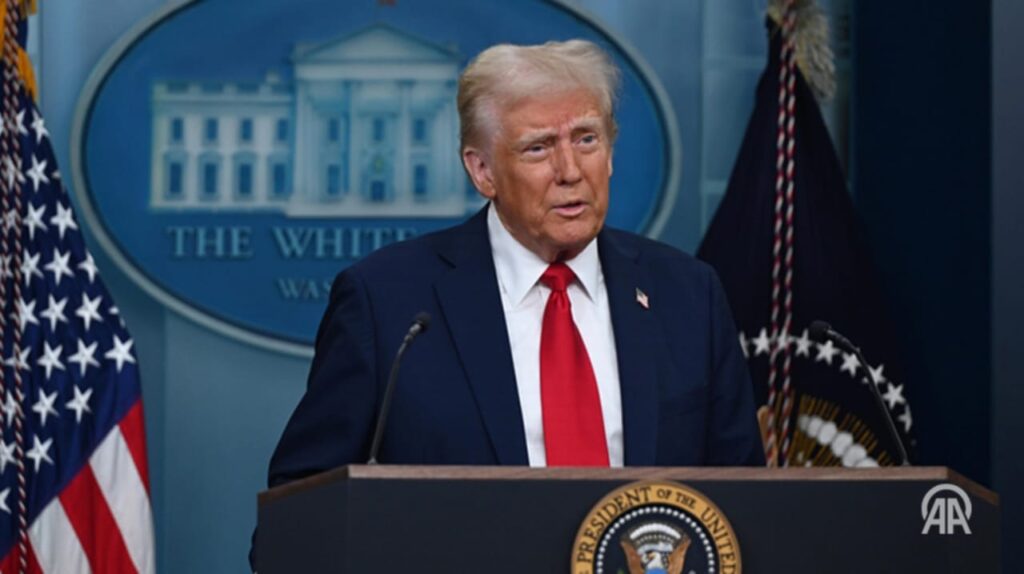
When asked by NBC’s Kristen Welker if he is defying the Supreme Court’s order, Trump insisted that the Justice Department under Attorney General Pam Bondi interpreted the 9-0 ruling differently. “They don’t view it that way at all,” Trump said. “They think it’s a totally different decision.” He also suggested that if instructed by his attorney general, he could request Abrego Garcia’s return but implied that the final say rests with El Salvador’s leadership.
This deflection has sparked outrage among legal experts and immigrant advocacy groups. “You can’t ignore a Supreme Court order just because your lawyers interpret it differently,” said constitutional law professor Dana Whitman of Georgetown University. “This isn’t a debate class—it’s the highest law of the land.”
Trump’s comments have raised further concern about his view of presidential power and the checks and balances built into the U.S. system. Critics warn that such statements reflect a dangerous disregard for judicial authority and constitutional governance.
El Salvador Refuses Return as Trump Highlights Alleged Gang Ties
El Salvador’s President Nayib Bukele has refused to allow Abrego Garcia’s return, labeling him a “terrorist.” During a recent visit to the White House, Bukele stated that he lacks the authority to send the deportee back. Trump echoed Bukele’s sentiments in the NBC interview, asserting that Abrego Garcia is “a very dangerous, very bad person,” citing alleged ties to the MS-13 gang.
The Trump administration, including former acting ICE Director Tom Homan, claimed that Abrego Garcia’s finger tattoos were “one of many” indicators of gang affiliation. However, Abrego Garcia has no criminal record in the U.S., and his family insists he has never been involved in gang activity.
These conflicting narratives have only deepened the controversy. Civil rights groups point out that accusations based on tattoos and unproven claims should not override court orders or deny someone due process. “This is racial profiling and fearmongering at its worst,” said Marisa Gutierrez, director of the Immigrant Defense League.
Calls for Clarity and Accountability Mount
In the wake of Trump’s comments and the ongoing legal impasse, pressure is growing on the Department of Justice to clarify its position and comply with the Supreme Court’s directive. Trump said there’s a possibility that his administration may return to the Supreme Court to seek a more explicit interpretation of the ruling.
Meanwhile, Vasquez and her children continue to demand justice. “He was thrown away to die,” she said tearfully at Thursday’s rally. Legal experts and immigrant rights organizations have joined her call for accountability, urging the Biden administration and federal courts to ensure compliance and uphold constitutional protections.
“This case isn’t just about Kilmar Abrego Garcia,” said legal analyst Caroline Brooks. “It’s about whether the U.S. government can ignore the Constitution when it suits them—and whether due process is truly a right for all, or just a privilege for some.”
The broader implications of Trump’s remarks and the handling of this case could reverberate through the upcoming presidential election and future immigration policies.



